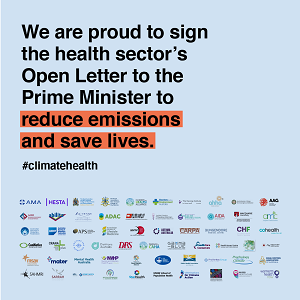Weekly CEO Update: Mental health reform has become a key budget priority… and rightly so.

As we await next week’s Federal Budget and the anticipated announcements of future funding and program development for our mental health ecosystem, we do so with the recommendations and reports all complete.
In recent years Federal Budgets have been handed down while major inquiries and reports have been pending.
Sure, there have been some good and large investments made during that time, as you’ll see from the quick reflection summary below, but this year’s Budget has the opportunity to define and steer our reform path for the next decade or more.
Reform that has to start with a detailed national agreement as recommended by our Charter 2020 and the Productivity Commission Inquiry into Mental Health, which is due in November of this year.
Reform to ensure the increasing number of Australians who need mental health care will receive it in the right place, at the right time.
And reform that listens to lived experience, innovates beyond established programs and builds accessibility for people not already connected to the system.
As always, the team at Mental Health Australia is looking forward to providing our members and stakeholders with a quick summary of the mental health initiatives in the Budget next Tuesday night, and then further opportunities for deeper analysis and discussion over the following days and weeks.
But before we get to Tuesday, we thought it might be useful to reflect on some of the past budget announcements around mental health and the journey we’ve all been on over the last few years to improve our system through systemic change.
Have a good weekend.

Leanne Beagley
CEO
Budget Reflection Summary
In last year’s October 2020-21 Federal Budget, and before the release of the Productivity Commission Inquiry into Mental Health, Treasurer the Hon Josh Frydenberg used his speech to talk about mental health and suicide prevention as a national priority, announcing extensions to telehealth services and that doubling of Better Access through Medicare from 10 to 20 sessions will continue to tackle the increased need as a result of COVID-19.
Minister for Health the Hon Greg Hunt said in his annual Budget video message to our members and stakeholders that night, these times call for new supports and new ways to build and sustain hope and dignity:
We have a nation that needs new support. And we know that for so many people the other great element of this budget, of job creation, of getting people back to work, isn’t just about economic support, it’s about mental health support. It’s about dignity, it’s about confidence, it’s about helping to reduce anxiety and to give people all of the hope which comes from employment or the prospect of employment.
In the 2019-20 Federal Budget, well before the COVID-19 pandemic, and the Black Summer bushfires, the Treasurer highlighted the importance of mental health reform when he said “It is a national tragedy that we lose so many people to suicide and that so many people live a life of quiet desperation… This issue demands our ongoing attention and resources.” It was also a budget that saw announcements of some $736.6 million for mental health and suicide prevention in two key areas across 25 specific initiatives over the following seven years.
In the 2018-19 Federal Budget, $338 million of new investment was announced. This represented significant investment in suicide prevention, older Australians and mental health research, as well as funding for the National Mental Health Commission to deliver on the Fifth National Mental Health and Suicide Prevention Plan.
The 2017-18 Federal Budget acknowledged and began to address one of mental health’s most critical issues – gaps in psychosocial support services in the community. Treasurer Scott Morrison identified $173 million to be invested in Australia’s mental health, including “$80 million to assist people with severe mental illness resulting in psychosocial disability who are not eligible for the NDIS,” encouraging the states to come on board and tip in a further $80 million.
The 2016-17 Federal Budget included a number of welcome new initiatives for mental health but left uncertainty about how existing reforms would be coordinated and integrated. There was a $40 million investment in veteran’s mental health and suicide prevention, and $800,000 for an online service to address perinatal depression, but at the same time, Australia still had no comprehensive plan to guide the very significant reforms changing the shape of mental health services.
For the 2015-16 Federal Budget our media release headline ‘Mental health awaits government action’ said it all. The Government’s commitments in mental health were made clear ahead of the Budget when they released the National Mental Health Commission’s Review of Programmes and Services – indicating that they would establish an Expert Reference Group (ERG) and enter into negotiations with the states and territories to develop the Fifth National Mental Health Plan.
In the 2014-15 Federal Budget we saw the commitment of $14.9 million over four years to establish ten new headspace sites and $18 million over four years for the establishment of a National Centre for Excellence in Youth Mental Health, to be operated by the Orygen Youth Health Research Centre. Funding for the Mental Health Nurses Incentives Program was extended for 12 months ($23.4 million in 2014-15) and savings from PiR – along with other savings in the health portfolio – were redirected to a new Medical Research Future Fund, which was expected to reach $20 billion by 2019-20.
Call to scale up climate action to avoid escalating health threats
Mental Health Australia was this week pleased to be able to support an Open Letter to the Prime Minister, along with more than 60 organisations, calling on the Federal Government to scale up emissions reduction strategies to prevent premature deaths and declining health outcomes associated with climate change.
The Open Letter calls for three key actions from the federal government:
- Prioritise health in Australia’s Nationally Determined Contribution to the Paris Agreement;
- Commit to decarbonising the healthcare sector by 2040, and establishing an Australian Sustainable Healthcare Unit; and,
- Implement a National Strategy on Climate, Health and Wellbeing for Australia.
The Open Letter also coincides with Mental Health Australia releasing our own position statement on the relationship between mental health and climate change.

|
|
|
|
|
Framework for Mental Health in Multicultural Australia Workshops Due to the developing restrictions in Sydney as a result of the COVID-19 pandemic, we have taken the precautionary decision to postpone the face-to-face Framework Workshop that was planned for next Tuesday, to a date still to be confirmed. We hope to be able to hold this face-to-face event in the coming weeks or months, and we thank you for your interest and support of the Embrace Multicultural Mental Health Project and the delivery of the Framework. For further enquiries, please contact multicultural@mhaustralia.org The Australian Technical Advisory Group on Immunisation (ATAGI) and Department of Health updated COVID-19 advice and information ATAGI have reinforced their recommendations on the use of the COVID-19 vaccine and the Chief Medical Officer has also issued a statement on the ATAGI advice. In response, the Department of Health has updated its vaccine information on the AstraZeneca vaccine, as well as information for vaccine providers, disability service providers, and for Aboriginal and Torres Strait Islander peoples.
|
|
|
|
|
|
|
|
|






